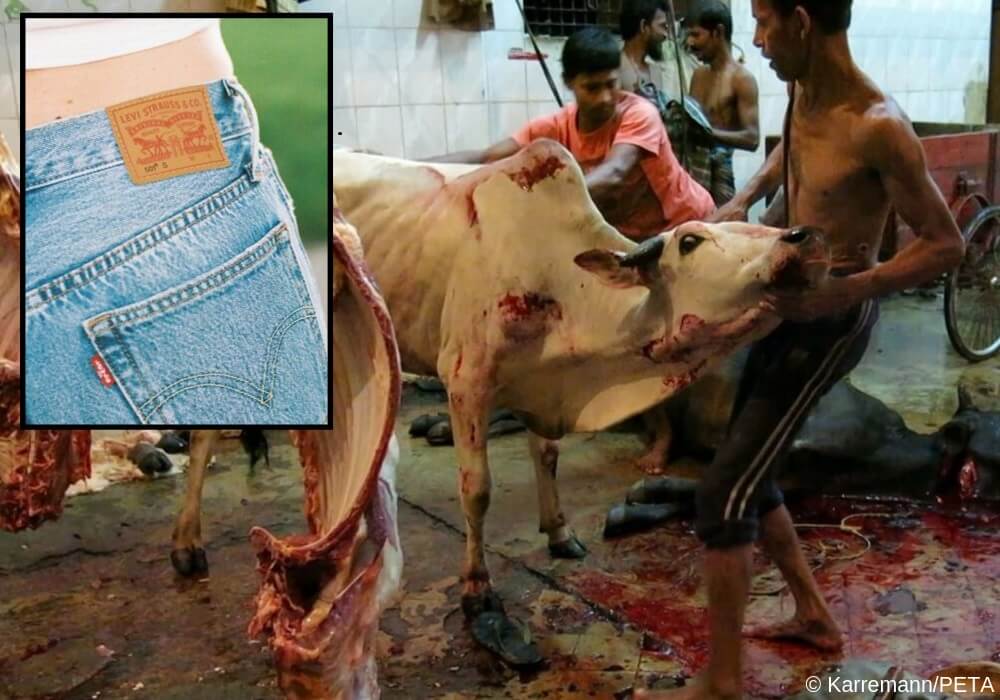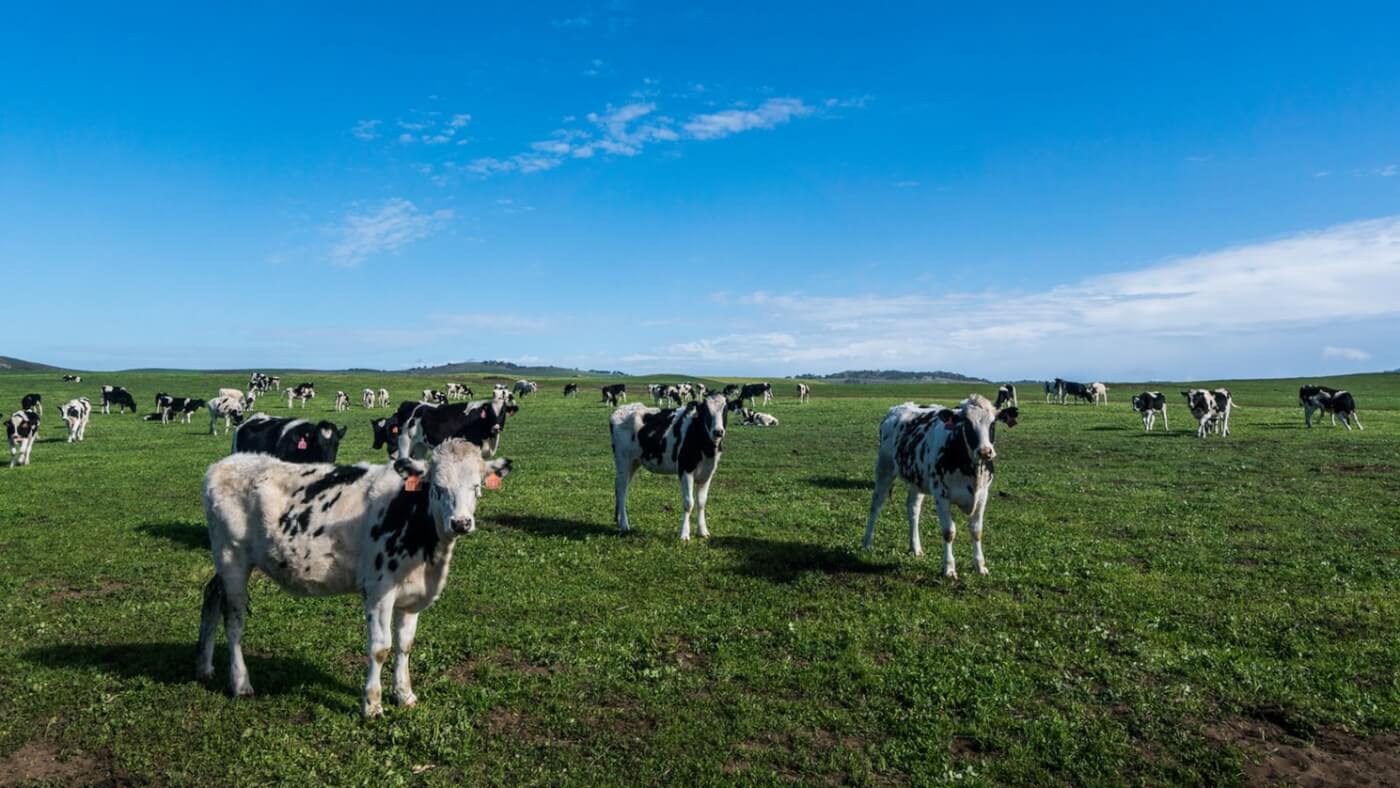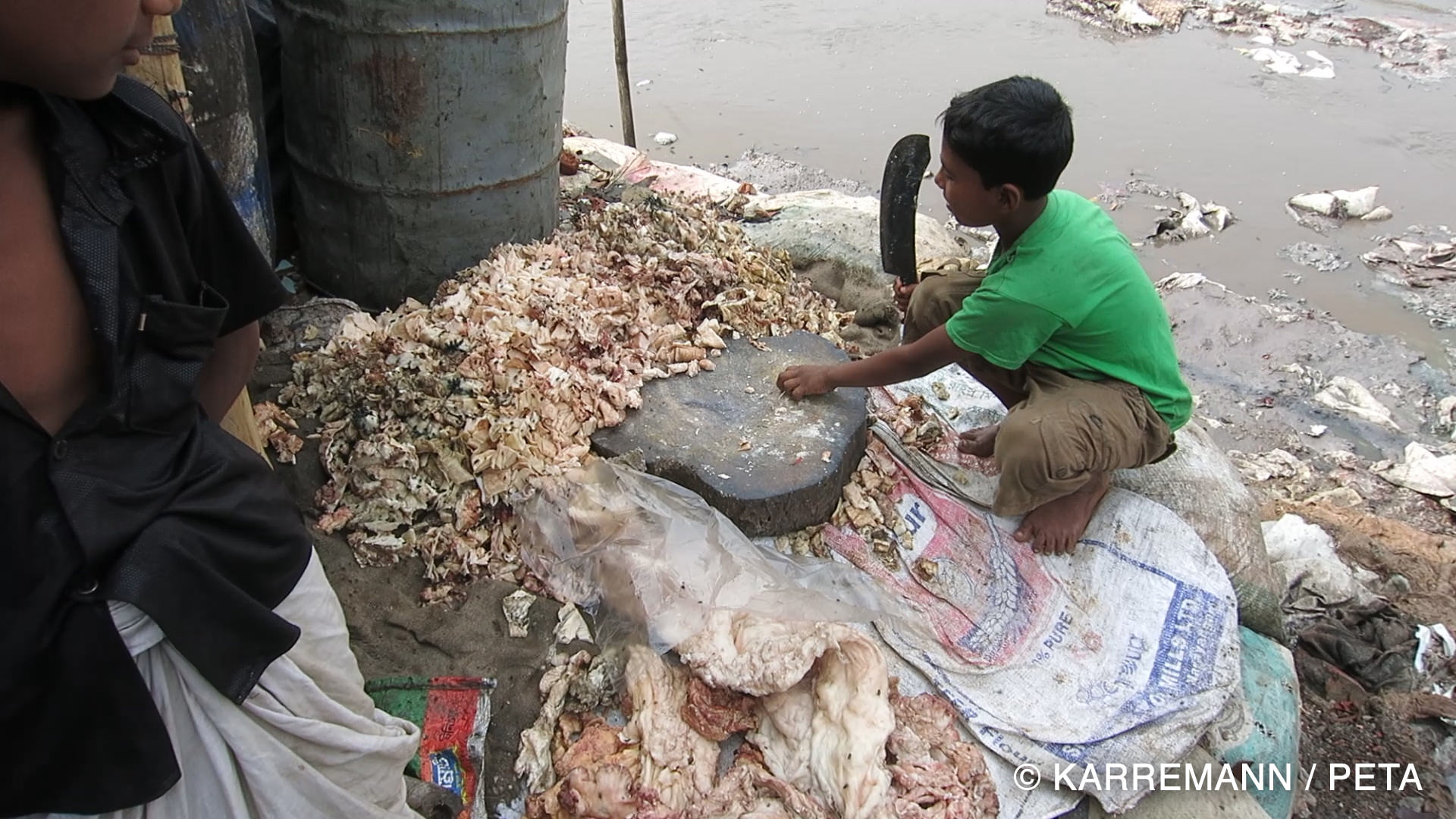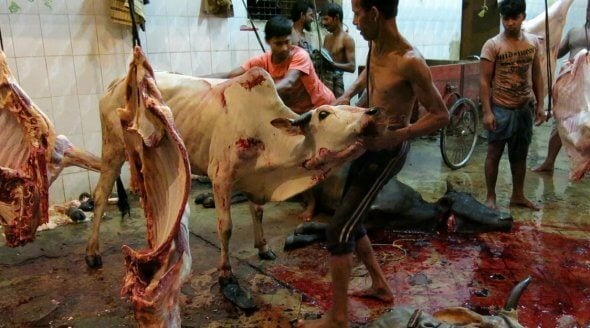Are Your Jeans Vegan?
Denim, the material used for jeans, is vegan – that’s the good news. But some brands – including Levi’s – use cows’ skin for the patches on the back of their jeans, thereby supporting cruelty to animals and contributing to environmental destruction.

Cows Suffer for Leather Patches
The majority of leather comes from cows slaughtered for their flesh and those on dairy farms who no longer produce enough milk to remain profitable. For the leather industry, they endure all the horrors of factory farming – including intensive confinement to filthy pens, castration without pain relief, chronic infections and disease caused by extreme crowding, and a terrifying trip to the abattoir.
Eyewitness footage shot on Brazilian ranches gives a glimpse of the terror and pain inflicted on cows as they’re killed for their skin and flesh:
It’s a common misconception that cows’ skins are a by-product of the meat industry. In fact, they’re the most economically important co-product. This means that buying leather directly contributes to the cruelty found in factory farms and abattoirs.
Leather Production Is One of the Leading Contributors to Climate Change
Cows release the greenhouse gases methane, carbon dioxide, and nitrous oxide into the atmosphere – and are the largest contributor to climate change of any species exploited for food. The United Nations is calling for a transition away from animal agriculture to protect the planet. The massive amounts of manure and slaughter waste, intensive water use, pollution, and deforestation involved in leather production make it the most damaging material for the environment. The demand for leather also fuels the destruction of the Amazon rainforest, as Brazilian ranchers supply leather to leading global fashion brands and retailers.
Leather Is Toxic for Humans, Too
Turning animal skins into leather requires several chemicals and toxins, including cyanide, ammonia, and lead, and people who work in or live near tanneries are exposed to them. PETA Germany visited the residential district of Hazaribagh in Dhaka, Bangladesh, where 15,000 labourers – some as young as 10 – toil in more than 200 tanneries. Workers stand barefoot in toxic chromium effluent and handle acids and bleaches that can cause chronic skin diseases and even cancer. Even if workers are given cheap rubber boots to wear, they often aren’t equipped with face masks or safety goggles to protect against fumes that can cause severe respiratory problems. Some workers lose fingers to the conveyor belts. A full 90% of tannery workers there die before the age of 50.
Because leather tanning is so dangerous, the process is being abandoned in most European countries and in the United States, and operations are moving overseas – jeopardising the health of people in other parts of the world so that people in the West can continue wearing leather.
How to Shop for Vegan Jeans
When you’re shopping for jeans, the first thing you should do is check the label to make sure they contain no leather or other animal-derived materials. These days, many brands sell vegan jeans with patches made from materials for which no animal had to suffer and be killed. Here are some of our favourite ones:
• Nudie Jeans: This Swedish-based denim brand is passionate about creating high-quality, ethical, and 100% organic denim with recycled-paper patches instead of ones made with leather – making its products totally vegan.
• Kings of Indigo: A sustainable vegan denim brand that focuses on producing organic, recycled, and long-lasting jeans, Kings of Indigo constantly explores how to reduce the impact of the production of its collection on the planet and its inhabitants. You can find the brand on ASOS.
• Blue of a Kind: This Italian brand sells eco-friendly recycled-denim jeans, creating vintage garments with a touch of luxury that are 100% vegan and have the lowest possible impact on the environment.
• Monkee Genes: One hundred per cent vegan, organic, and ethical, this vibrant and youthful brand is dedicated to social and environmental responsibility, good working conditions, and human rights. It sells classic jeans and chinos as well as T-shirts and accessories.
• MUD Jeans: This super-stylish brand based in the Netherlands sells environmentally friendly jeans and shows that it cares about the environment, humans, and animals. It uses recycled and organic cotton and printed labels instead of leather patches.
More You Can Do
Opt for vegan leather when you’re shopping for other items, such as jackets, shoes, and bags. It’s a much safer, more ethical, and more sustainable choice – and the number of innovative vegan options for clothing, shoes, accessories, furniture, and car interiors is growing rapidly!
The original blue-jeans brand, Levi’s, uses cows’ skin for the patches on its jeans, supporting cruelty to animals and contributing to environmental destruction. Please urge the company to switch to sustainable, animal-friendly alternatives:






